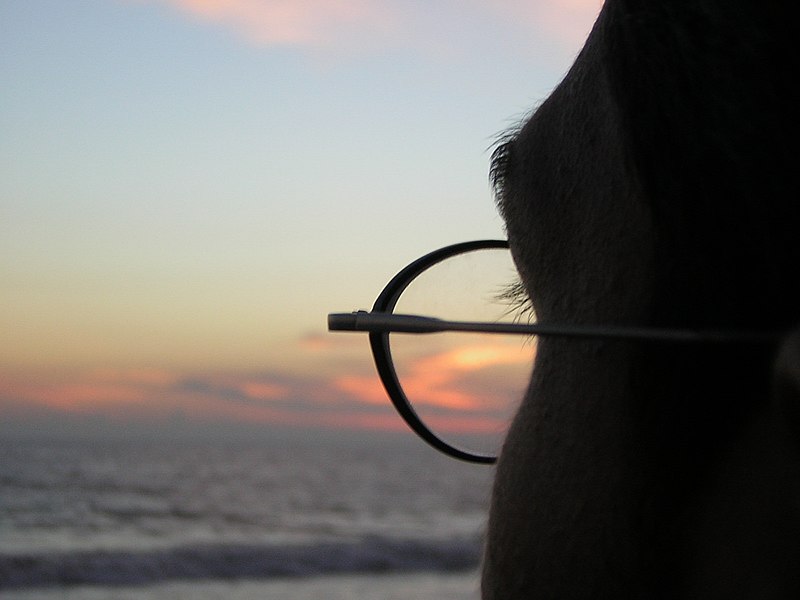 |
| Creative Commons License 3.0 Credit to Dcrjsr |
"'Isn't it beautiful?' gasped Milo.
'Oh, I don't know,' answered a strange voice. 'It's all in how you look at things'" (102).
The voice belonged to a boy named Alec Bings, who was standing three feet above the ground in midair. Alec explains that in his family, every person is born with his head exactly where it will be when he is an adult, and he grows toward the ground.
"'You certainly must be very old to have reached the ground already,' [said Alec].
'Oh no,' said Milo seriously. 'In my family we all start on the ground and grow up, and we never know how far until we actually get there.'
'What a silly system.' The boy laughed. 'Then your head keeps changing its height and you always see things in a different way? Why, when you're fifteen things won't look at all the way they did when you were ten, and at twenty everything will change again.'
'I suppose so,' replied Milo, for he had never really thought about the matter" (105).
Alec sees everything the way an adult does -- he sees through things to what is inside them, behind them, or subsequent to them. But is this the only correct way to see things? Ideally, we are always striving to have a fully developed sense of perception and understanding; in other words, the perspective on a mature adult. This is why we obtain an education. But is it wrong to have our perspective change as we grow? To see thing differently at age fifteen than we did at ten, and to have it change again at twenty-two, and thirty-nine, and seventy-one?
I will circulate this question by finding reviewers of The Phantom Tollbooth and Alice in Wonderland on Goodreads and asking them about the importance of perception. I will also look for blogs via Google Blog Search which talk about these two books and about perspective, journeys and growing up.
 |
| Creative Commons License 2.0 Credit to Mohan K |
As an aside, I want to mention that the fact that your perspective changes as you grow -- this growth being physical, mental and spiritual -- is one of the great marvels of life. The reason why I read stories of adventures and quests is not to see the character slay the dragon, rescue the princesses, or achieve some grand goal, but to see the protagonist and his fellows undergo meaningful change. The character's change of perception, or the obtaining of some virtue that he or she didn't have before, is the epitome of storytelling for me.

I really liked your angle on this post. Using the dialog from your book, you caught my attention and held it by offering your plan for analysis with the story. Explaining why you like adventure stories and the meaning they have for you also did good things in helping you relate to your audience.
ReplyDeleteAdam, this is awesome. First of all, I definitely want to read this book now, just from reading the dialogue that you included. And your analysis is awesome. I think that analyzing people's changes in perspective as they grow is a great angle for this book, and for Alice in Wonderland. I don't know what happens to the characters, Milo and Alec, in The Phantom Tollbooth, but does their perception (Alec's static maturity and Milo's lack of maturity) affect the way they interact with other characters, the things that happen to them, the author's tone toward them, etc? It sounds like it might make us more mature by going through immaturity. How is this represented in the plot, or other literary elements? I can't wait to read more!
ReplyDelete